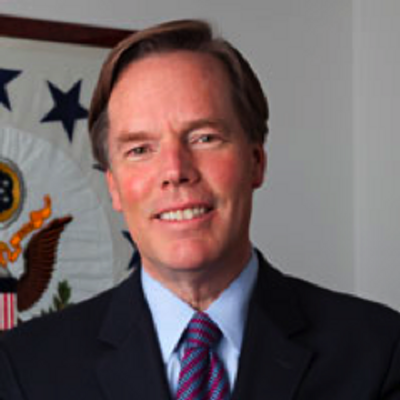

◼ We’re not for the latest Bernie Sanders idea, but we can see how the idea of getting the same pay for less work would come naturally to a senator.
◼ On January 6, 2021, Mike Pence defied Donald Trump. This was critical. He now says he cannot endorse Trump for another term as president—not “in good conscience.” It is startling that, in a general election, a former vice president has declined to endorse the president alongside whom he served. Whatever one may think of the choices Pence made between 2016 and 2020, he has behaved with a bold independence in the years since. Last summer, when he was running for the GOP presidential nomination, Pence traveled to Ukraine, to express his solidarity with that people under siege—this despite the fact that he must have known it would do him no good with the GOP electorate. He continues to remind Republicans who do not wish to hear it that the national debt is rising dangerously—and that entitlement programs need reforming because of it. He is also standing firm on the right to life at a time when many Republicans are blaming that cause for the party’s political travails. On all these issues, he differs with Trump in a way that speaks well of him—and of a brand of conservatism that deserves renewal.
◼ Trump is in a bind. After posting a $91.6 million bond to stave off writer E. Jean Carroll’s enforcement of the $83.3 million defamation judgment against him while he appeals the jury’s verdict, he faces a Monday deadline to post a bond in the neighborhood of $500 million to prevent New York attorney general Letitia James from enforcing the $454 million judgment she won against him for civil fraud. Trump says numerous bonding companies have declined to underwrite such a bond; they want him to post cash or its equivalent (commercial paper), not real estate (the value of which is not as certain and stable). He doesn’t have it. He has asked an appellate court to accept a smaller bond; if it rebuffs him, James can begin collecting, which could involve seizing some of his New York properties. Trump may have a lifeline: The parent of his Truth Social platform could merge today with a shell public company. With Trump supporters bidding up the stock value, Trump’s 60 percent stake could be worth over $3 billion. While he could not sell his shares yet, he might be able to borrow against them—but the merger would have to happen first, an iffy proposition. And there are, of course, more court cases to come.
◼ At an Ohio rally before the state’s Republican primaries, Trump promised a “bloodbath” if he doesn’t win in November. That’s what the media went with, anyway. Discussing the auto industry and his plans to impose a 100 percent tariff on Chinese-made electric vehicles coming to the U.S. from Mexico, Trump warned that, if Joe Biden wins reelection, “it’s going to be a bloodbath for the country” and “that will be the least of it.” He added: “But they’re not going to sell those cars. They’re building massive factories.” The context made clear that Trump was predicting dire economic consequences for a Biden second term. But that’s much less exciting to the media and to Democrats, whose chances of victory in November depend on elevating Trump’s threat profile. The Biden campaign immediately put out a statement condemning Trump’s remarks. Hawaii senator Brian Schatz urged headline writers: “Don’t outsmart yourself. Just do ‘Trump Promises Bloodbath If He Doesn’t Win Election.’” Most of them dutifully obeyed. That so many on the left insist on mischaracterizing Trump when his actual actions and statements—see below—provide plenty of grounds for criticism continues to amaze. If his critics aren’t careful, they may help him return to the White House.
◼ Trump has a new stock bit with which he opens his political rallies—one that he’s been honing for months and that has merited the attention of the press, now that he is the GOP’s presumptive presidential nominee. With mawkish solemnity, the former president and his supporters open the show with demands for justice supposedly denied the January 6 rioters. Trump salutes the prisoners in absentia as a recorded rendition of them singing the national anthem plays. An announcer laments that the “January 6 hostages” have been “horribly and unfairly treated,” and Trump pledges to clear the good names of these “unbelievable patriots.” Republicans shouldn’t need to be reminded that most Americans, justifiably, do not like what happened on January 6, 2021. If their voting patterns and responses to pollsters are any indication, they’re eager to avoid a repeat of that traumatic episode. It’s not clear what the GOP gets out of these displays except the opportunity to soothe Trump’s wounded ego. It is, however, easier to see what Republicans risk losing if the next election becomes an up-or-down referendum on the Capitol riot.
◼ Bernie Moreno has won the Republican nomination for the U.S. Senate in Ohio and will take on incumbent Sherrod Brown in November. The MAGA takeover of the once-staid Ohio GOP continues. In 2022, Moreno bowed out of the Senate primary to replace Rob Portman, allowing J. D. Vance (whom Trump eventually endorsed) to consolidate enough of the MAGA vote to win the primary. This time Moreno also had Trump’s backing, while Matt Dolan (the third-place finisher in 2022 and the only candidate in that primary to distance himself from Trump) was backed by Governor Mike DeWine and Portman. Frank LaRose, the Ohio secretary of state, ran as the most pro-life candidate, having led the failed opposition to the abortion referendum in 2023. Division between Dolan and LaRose didn’t matter, as Moreno won a majority of the primary vote. The car dealer, originally from Bogotá, Colombia, is an untested politician, and a late scandal over an unused online gay-dating profile for Moreno highlighted how unvetted he is. (Moreno’s campaign produced a former employee who said he had created the profile as a juvenile prank.) Democrats spent money late in the race to boost Moreno. Brown starts in a hole, given Ohio’s rightward shift in presidential-election cycles, but he has proven a tough nut to crack. If Moreno unravels, Republican primary voters will have nobody to blame but themselves.
◼ Senator Bernie Sanders (I., Vt.) wants everyone to get paid the same for doing less work. Many entrepreneurs throughout human history have wanted this same goal. In fact, they set their sights higher, wanting everyone to get paid more for doing less work. So they invented various labor-saving devices that allow humans to get more done in less time. What is Sanders’s plan to contribute to the great human endeavor of becoming wealthier while working less? Does he have an idea for the next automobile, a better management strategy, or the power loom for the 22nd century? No, Sanders wants to write words on a page and have a couple of hundred people vote for it. He has introduced a bill to mandate a 32-hour workweek “with no loss in pay.” It would amend the Fair Labor Standards Act to reduce the definition of full-time work from 40 hours per week to 32 hours. Pay wouldn’t go down, because the bill says employers “may not reduce the total workweek compensation rate.” Working hard is a core part of being human. Maybe if you’re an 82-year-old socialist who has worked only in politics your entire life, you lose touch with what it means to be a productive member of society. But for the rest of us, we wouldn’t eliminate work even if we could.
◼ SpaceX’s Starship is the tallest rocket ever built and has a maximum thrust over twice that of the legendary Saturn V and around 80 percent more than NASA’s new colossus, the SLS. On March 14, its third launch took it into space. The first attempt had ended explosively after takeoff, but at least Starship flew. The second try went better but came to a fiery conclusion before reaching the atmosphere. The third flight did not meet all its objectives, with Starship breaking up on reentry. Its booster also failed to make a controlled splashdown. Nevertheless, this sequence of increasingly successful launches looks (so far) like a vindication of SpaceX’s learning-by-launching approach (at a cost of about $90 million a shot), an approach that NASA would not risk taking in front of an audience of taxpayers. Benefiting from private-sector discipline, Starship (which is planned to be reusable) is proving to be much cheaper than SLS and ought to play a key role in America’s attempt to establish a permanent presence on the moon, with Mars, hopes SpaceX founder Elon Musk, to follow: an excellent answer to the class warriors’ question of what entrepreneurs are for.

◼ Free markets work so well because of the continuing dialogue between buyer and seller. Companies that pay more attention to government edicts, which come from neither buyer nor seller, are likely to be headed for trouble. Taken in by the hype surrounding electric vehicles (EVs), Hertz started buying and ordering significant numbers of them. The White House cheered. But the company had not properly considered whether travelers would want to rent a type of car that was unfamiliar to them. Making matters worse were Hertz’s failures to adjust its “fill the tank before returning” rules to reflect the time needed to find a charging station and then recharge the car. The cost of repairing EVs also turned out to be about twice that for traditional cars. A further blow came when the falling price of EVs hit the resale value of those that Hertz had on its books or (having announced it was disposing of one-third of them) was selling. Hertz had other problems too, and its CEO stepped down in mid March. His exit should sound an alarm in the C-suites of Detroit.
◼ Vladimir Putin has “won” another “presidential” “election.” He will “serve” a sixth “term.” Boris Nemtsov was once his main opponent. Nemtsov was killed in February 2015. Then Alexei Navalny was his main opponent. Navalny was killed in February 2024. Another opponent, Vladimir Kara-Murza, is now in a Siberian isolation cell. (He was a lieutenant to Nemtsov.) When Putin “won” in 2018, President Trump congratulated him on his “victory.” This year, the United States did no such thing. Xi of China congratulated Putin, however. Modi of India offered “warm congratulations.” In Italy, the deputy prime minister, Matteo Salvini, said that “when people vote, they are always right.” (Salvini is a long-standing and unblushing admirer of Putin.) Most touching were the Russians who took their ballots and laid them on the grave of Navalny.
◼ In a strike on Odesa, Russian forces killed at least 20 people and wounded at least 70. They did this in a “double tap.” Russian forces have been “double tapping” in Syria for many years. They strike once, killing some and injuring others. The injured may be trapped in rubble. Then the rescuers come—and Russian forces strike again, killing and injuring them, too. Thus, the “double tap” is complete. This is an outstanding evil from a regime outstanding for its evil.

◼ Hundreds took to the streets in Santiago de Cuba last weekend to protest blackouts and food shortages. Since the beginning of March, maintenance work on a thermoelectric plant has cut power in some areas of Cuba for up to 14 hours a day. Food has spoiled in refrigerators. A shortage of fuel to generate electricity has compounded the crisis. “We urge the Cuban government to respect the human rights of the protesters and address the legitimate needs of the Cuban people,” the U.S. embassy in Havana posted on X. “The US Government, especially its embassy in #Cuba, must refrain from interfering in the country’s internal affairs and inciting social disorder,” the Cuban foreign minister replied, attempting to deflect criticism of Havana’s malfeasance and disastrous economic policies. The Cuban government recently raised fuel prices 400 percent. It acknowledged the scarcity of flour and bread and, for the first time ever, requested aid from the United Nations World Food Program, which has provided powdered milk from suppliers in Brazil, Canada, and the United States, that bête noir of Cuba’s Communist establishment. If Senator Sanders brings the powdered milk personally, everyone will benefit.

◼ Nicholas Burns, the U.S. ambassador to China, began his tenure there in a notably conciliatory posture. Burns had pulled his punches when it came to talking about the regime’s transgressions, preferring to leave his diplomatic options open. But our man in Beijing has recently become more vocal, making some clear-eyed comments about the character of the Chinese government. In a recent interview with Bloomberg, he called it “supremely ironic” that Chinese officials are lamenting the possibility of U.S. legislation addressing TikTok, since they bar their citizens from using U.S. social-media platforms. That comment followed an interview that aired on 60 Minutes. “Ultimately, they want to become and overtake the United States as the dominant country globally,” he noted, adding that we don’t want to live in that world. Excellent words, if belated.
◼ Philippe de Gaulle was the son of the French general and president. He fought bravely in World War II. He became an admiral. Then a senator. It was not easy being de Gaulle’s son. Philippe was amazingly gracious about this. Interviewed on his 100th birthday, he said, “I would have preferred to give some of my longevity to my father.’” Admiral de Gaulle has died at 102. R.I.P.
